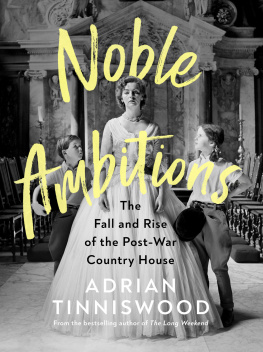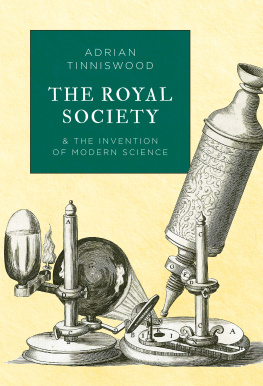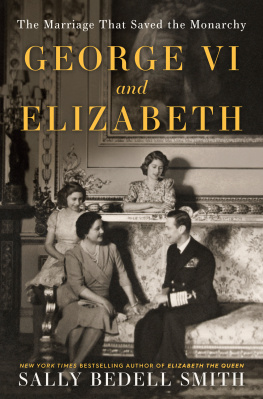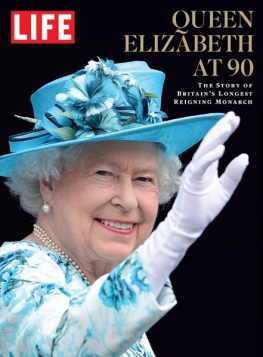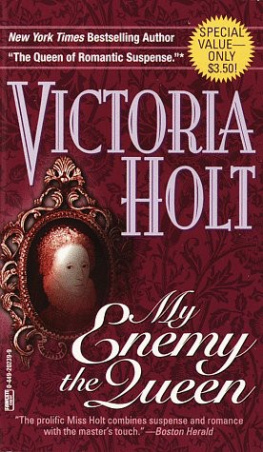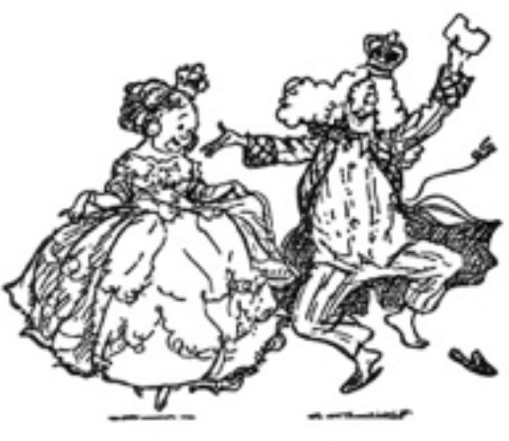Copyright 2018 by Adrian Tinniswood
Hachette Book Group supports the right to free expression and the value of copyright. The purpose of copyright is to encourage writers and artists to produce the creative works that enrich our culture.
The scanning, uploading, and distribution of this book without permission is a theft of the authors intellectual property. If you would like permission to use material from the book (other than for review purposes), please contact permissions@hbgusa.com. Thank you for your support of the authors rights.
Basic Books
Hachette Book Group
1290 Avenue of the Americas, New York, NY 10104
www.basicbooks.com
First Edition: October 2018
Published by Basic Books, an imprint of Perseus Books, LLC, a subsidiary of Hachette Book Group, Inc. The Basic Books name and logo is a trademark of the Hachette Book Group.
The Hachette Speakers Bureau provides a wide range of authors for speaking events. To find out more, go to www.hachettespeakersbureau.com or call (866) 376-6591.
The publisher is not responsible for websites (or their content) that are not owned by the publisher.
Library of Congress Cataloging-in-Publication Data has been applied for.
ISBNs: 978-0-465-09402-8 (hardcover), 978-0-465-09403-5 (ebook)
E3-20180814-JV-NF
F OR S USAN AND D AVID
When you appear show yourself gloriously, to your people; like a god, for as the holy writ says, we have called you gods.
T HE M ARQUESS OF N EWCASTLES letter of advice to Charles II, 1659
The King asked
The Queen, and
The Queen asked
The Dairymaid:
Could we have some butter for
The Royal slice of bread?
The Queen asked
The Dairymaid,
The Dairymaid
Said, Certainly,
Ill go and tell
The cow
Now
Before she goes to bed.
The Dairymaid
She curtsied,
And went and told
The Alderney:
Dont forget the butter for
The Royal slice of bread.
The Alderney
Said sleepily:
Youd better tell
His Majesty
That many people nowadays
Like marmalade
Instead.
The Dairymaid
Said Fancy!
And went to
Her Majesty.
She curtsied to the Queen, and
She turned a little red:
Excuse me,
Your Majesty,
For taking of
The liberty,
But marmalade is tasty, if
Its very
Thickly
Spread.
The Queen said
Oh!
And went to His Majesty:
Talking of the butter for
The royal slice of bread,
Many people
Think that
Marmalade
Is nicer.
Would you like to try a little
Marmalade
Instead?
The King said,
Bother!
And then he said,
Oh, deary me!
The King sobbed, Oh, deary me!
And went back to bed.
Nobody,
He whimpered,
Could call me
A fussy man;
I only want
A little bit
Of butter for
My bread!
The Queen said,
There, there!
And went to
The Dairymaid.
The Dairymaid
Said, There, there!
And went to the shed.
The cow said,
There, there!
I didnt really
Mean it;
Heres milk for his porringer
And butter for his bread.
The queen took
The butter
And brought it to
His Majesty.
The King said
Butter, eh?
And bounced out of bed.
Nobody, he said,
As he kissed her
Tenderly,
Nobody, he said,
As he slid down
The banisters,
Nobody,
My darling,
Could call me
A fussy man
BUT
I do like a little bit of butter to my bread!
A. A. MILNE
I t was five oclock in the afternoon. General Sir Henry Lynedoch Gardiner realised with a jolt that he had made a terrible mistake.
A veteran of the Crimean War and the Indian Mutiny, Gardiner had served in the royal household for twenty-seven years. Now that he was seventy-six, his memory was starting to fail himrather a serious fault in Queen Victorias senior equerry, whose job it was to smooth his sovereigns path through life. He was very defensive about it, lashing out at anyone who tried to remind him of his duties.
Whenever there was a big dinner at Windsor Castle, a band from one of the five Guards regiments that made up the Household Division of the British army entertained the queen and her guests by playing on the terrace outside the dining room. To get there, they had to walk through the dining room itself, making sure they were at their places before the diners arrived.
There was just such a dinner this eveningand Gardiner had forgotten to book the band. With less than four hours to go, the guardsmen were all at their camp in Windsor Great Park or, worse, out drinking in Windsor itself. This was the 1890s: there were no telephones and no cars. There was no way to contact them, no way to have them in place on the castle terrace by 8:45, when the queen and her guests would sweep into the dining room, expecting music.
Gardiner decided he had no choice but to resign. He went to the junior equerry, a young Guards officer named Fritz Ponsonby, and told him so. But Fritz reckoned the game was not yet lost. He sent a groom from the stables galloping off with a message for the officer commanding the regiment, begging him to gather the bandsmen together. He sent another to the superintendent of the stables at Windsor, ordering up three large wagonettes to bring the men to the castle as soon as they were assembled. Then, realising that if they were even slightly late they wouldnt be able to walk through the dining room to the terrace, he spoke to the head of the Windsor Castle fire brigade and persuaded him to have four ladders ready on the North Terrace. The bandsmen were going to have to scale the castle walls.
Just after 8:45, Queen Victoria and her guests entered the dining room. Fritz and General Gardiner came up the rear, despondent as they realised there was no national anthem wafting in through the windows from the terrace. But as the guests sat down, Fritz noticed shadowy figures clambering over the wall onto the terrace, lugging their instruments after them. Before Victoria had taken a mouthful of soup, the Guards band struck up an overture and the day was saved.
The next morning, General Gardiner received a note from the queen pointing out that the band should always play the national anthem when she came in to dinner.


